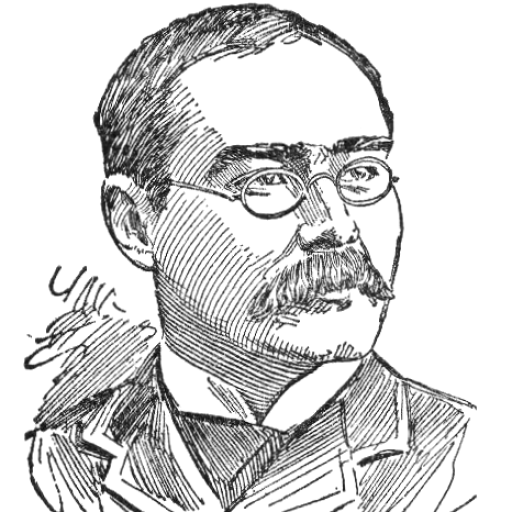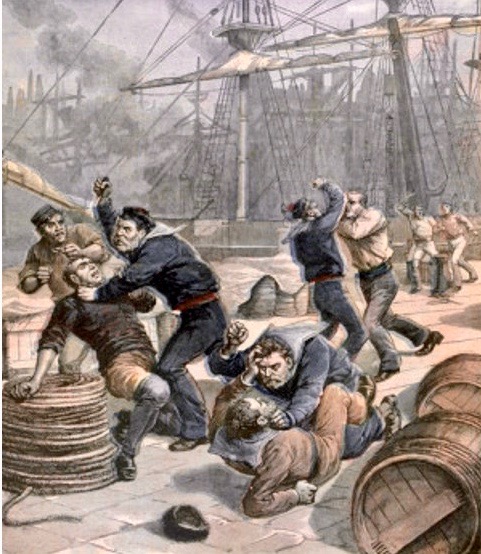But oh, beware my Country, when my Country grows polite !
This poem describes one national characteristic of the British: they are slow to get angry, but when they are provoked past the bounds of their tolerance they can strike back with a vengeance – as Hitler, the Argentinean junta at the time of the Falklands War, and Saddam Hussein found out at their cost.
The title comes from a famous line of Virgil’s Aeneid where the Trojan priest Laocoön says in the debate about what to do with the Trojan Horse: “timeo Danaos et dona ferentis” – “I fear the Greeks, even when they bring gifts” (from which comes the modern expression “beware a Greek bearing gifts”). Here it is only an indirect reference – “beware the British when they become very polite, it means that their patience has been tried to the limit”.
Et Dona Ferentes
In extended observation of the ways and works of man, From the Four-Mile Radius roughly to the Plains of Hindustan: (1) I have drunk with mixed assemblies, seen the racial ruction rise, And the men of half Creation damning half Creation's eyes. I have watched them in their tantrums, all that pentecostal crew, French, Italian, Arab, Spaniard, Dutch and Greek, and Russ and Jew, Celt and savage, buff and ochre, cream and yellow, mauve and white, But it never really mattered till the English grew polite; Till the men with polished toppers, till the men in long frock-coats, Till the men who do not duel, till the men who war with votes, Till the breed that take their pleasures as Saint Lawrence took his grid, Began to "beg your pardon" and - the knowing croupier hid. Then the bandsmen with their fiddles, and the girls that bring the beer, Felt the psychological moment, left the lit Casino clear; But the uninstructed alien, from the Teuton to the Gaul, Was entrapped, once more, my country, by that suave, deceptive drawl. . . . . . . . . . . . As it was in ancient Suez or 'neath wilder, milder skies, I "observe with apprehension" how the racial ructions rise; And with keener apprehension, if I read the times aright, Hear the old Casino order: "Watch your man, but be polite. "Keep your temper. Never answer (that was why they spat and swore). Don't hit first, but move together (there's no hurry) to the door. Back to back, and facing outward while the linguist tells 'em how - "Nous sommes allong ar notre batteau, nous ne voulong pas un row.'" So the hard, pent rage ate inward, till some idiot went too far ... "Let 'em have it!" and they had it, and the same was merry war - Fist, umbrella, cane, decanter, lamp and beer-mug, chair and boot - Till behind the fleeing legions rose the long, hoarse yell for loot. Then the oil-cloth with its numbers, like a banner fluttered free; Then the grand piano cantered, on three castors, down the quay; White, and breathing through their nostrils, silent, systematic, swift - They removed, effaced, abolished all that man could heave or lift. Oh, my country, bless the training that from cot to castle runs - The pitfall of the stranger but the bulwark of thy sons - Measured speech and ordered action, sluggish soul and unperturbed, Till we wake our Island-Devil - nowise cool for being curbed! When the heir of all the ages "has the honour to remain", When he will not hear an insult, though men make it ne'er so plain, When his lips are schooled to meekness, when his back is bowed to blows - Well the keen aas-vogels know it - well the waiting jackal knows. (2) Build upon the flanks of Etna where the sullen smoke-puffs float - Or bathe in tropic waters where the lean fin dogs the boat - Cock the gun that ‘is not loaded', cook the frozen dynamite - But oh, beware my Country, when my Country grows polite!
Notes
[1] ‘Four-mile radius’ – central London.
[2] ‘Aas-vogels’ – vultures.

